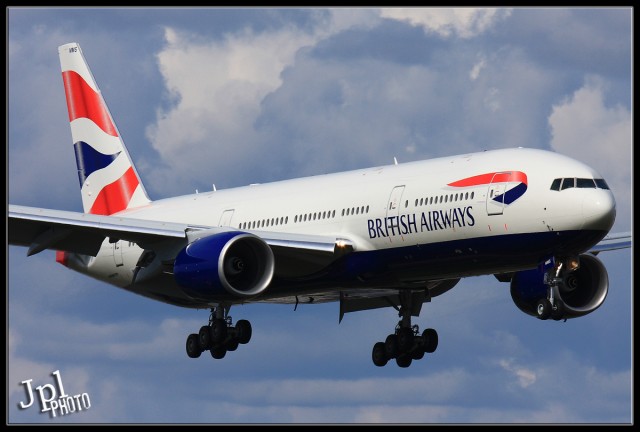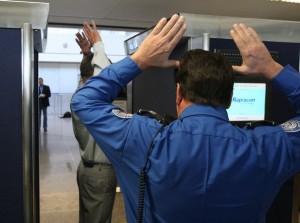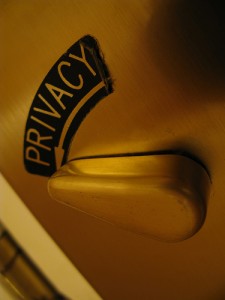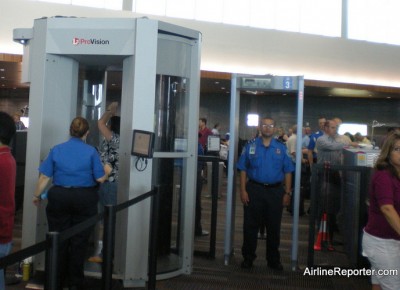
British Airways Boeing 777. Photo by Jeremy Dwyer-Lindgren.
Recently, British Airways started keeping information on some of their VIP customers and searching for their images online all in the name of service. The program, called “Know Me,” has some privacy advocates worried.
“Last year we re-committed to the ethos: To Fly. To Serve. That’s what ’˜Know Me’ is all about – enabling us to recognise our customers in a way that is individual to them,” Jo Boswell, head of customer analysis at British Airways, stated. ’œWe’re essentially trying to recreate the feeling of recognition you get in a favourite restaurant when you’re welcomed there, but in our case it will be delivered by thousands of staff to millions of customers.’
The idea is simple enough. Airline employees have iPads which contain information on high-end passengers. What kind of food they prefer, if it is the first time they have flown with a certain product and if they might have had previous issues flying on the airline. The software also allows the crew to identify a passenger by searching Google Images.
Although many passengers probably appreciate this high-level of service, not everyone is so happy. According to CNN, Emma Carr, deputy director of privacy campaign group Big Brother Watch stated, “Since when has buying a flight ticket meant giving your airline permission to start hunting for information about you on the internet?” Fundamentally, British Airways has not asked their passengers’ permission to take part in this scheme. Surely, if they want to search Google to find pictures and any other information all they have to do is ask?”
Why wouldn’t an airline take advantage of this? I am pretty sure photos found on the internet are part of the public domain, that anyone could find.
The airline states that they will not be doing this level of service for a huge majority of the passengers, but just the rare few who probably are used to being known. According the British Airways, the service is being well received. “The early results have been extremely positive, our customers love being recognised and treated as an individual, and our customer service staff and cabin crew feel empowered to deliver a really bespoke service,” Boswell said. “This is just the start though ’“ the system has a myriad of possibilities for the future.’
What do you think? Is this a genius customer service move, creepy or an invasion of privacy?

A Transportation Security Administration employee demonstrates a backscatter X-ray body scanner, following the directions of a screener, at SEA Photo by Aubrey Cohen/Seattle PI
Ah the joys of body scanners. Costing a fortune, invading our privacy and making people feel safer about flying. I haven’t been a fan of them since the get-go and now my home town airport has them.
Back in August I reported that Seattle-Tacoma International Airport (SEA) would start using body scanners in September. However, they got delayed, but now are ready to start scanning. Two of the machines have been installed at the south check point and should be in full use by the end of this week.
Jim Forman with KING5 was at SEA last week and got a first look at the body scanners. Some of the people he interviewed said, ’œIf it keeps us safer on the flights, it’s worth it.’ Well, what if it doesn’t keep you safer? Is it worth it then?
Aubrey Cohen with the Seattle PI asked about privacy and health concerns. The TSA explained to him that the machines are not able to store images, and the screeners in the room may not have any cameras, cell phones or other recording devices. The TSA also applies a “privacy algorithm” that makes the images less explicit. Even though there might be the rule of no cameras or phones, that doesn’t mean all employees across the country will listen to those rules.
When asked about heath concerns, Jeanette Parker, deputy federal security director at SEA told Cohen,”This technology is safe, it meets national health and safety standards. Backscatter technology was evaluated by independent third parties. Studies have shown a single scan with backscatter imaging technology is equivalent to two minutes of flight at altitude.”
Even though the scanners are only at the south check point, additional scanners will be installed at the north check point soon. It will be closed for two weeks while they reconfigure the check point for the new body scanners. The TSA does not expect there to be any delays since they will open all the stations at the other three check points.
As more and more airports get these scanner I wonder why do we continue to spend millions of dollars to give the impression of flight safety. They do not make us safer, they cost us money and they take away our privacy.
Well, time to go take a look at them first hand. I am on my way to SEA, since I am flying this morning. I will head over to the south terminal to check them out.
Remember, no matter what airport you are at, you have the right to opt out of being scanned.
Check out additional photos from the Seattle PI.

It is time to improve privacy!
I haven’t been able to talk about body scanners for a while and it is about time I bring them up again. When I blog about them or am doing research, I constantly see the same argument, “What’s the big deal, we all have the same parts, get over it.”
The thing is we are not all the same and even if we are, we still have a right to privacy. With my obvious dis-like (maybe that is too nice of a word) for the body scanners, I get people who write me in support and calling me fool. Recently I had a woman write me who is a pre-operative transsexual, meaning she self-defines as a woman, but still has male genitalia. It is absolutely her right to keep her situation private and no one should have the ability to invade her privacy. Talking about privacy, I will call her “Jane” to keep her anonymous for this blog.
I asked Jane what it is like being asked to go through a body scanner and she told me, “that having to go through a body scanner would be particularly difficult for me as the body scanners actually reveal a person’s gender. ” She also explained it becomes even more difficult because she has, “anxiety which makes the thought of using these even more difficult.”
Jane lives in the UK and unlike in the US, passengers cannot opt-out of body scanners. If you get “randomly selected” , you must be scanned or you don’t fly.
Another argument people often use is, “if you don’t like it, don’t fly then.” There are so many reasons why this argument is weak. If you don’t agree with something, you should stand up for what you think is right and try to change the system.
Jane told me she doesn’t fly as much now due to the fear and has missed out on some very important life experiences. “I have relatives in India who I would like to see again and would also like to travel to India to pay my respects to relatives who have died but feel unable to pass through an airport whilst passing through a body scanner is a condition to boarding my flight,” Jane explained.
We are a global society and need to allow people to fly around the world to continue to grow and prosper. We should not become society that violates a person’s privacy, so passengers can get a false sense of security that the body scanners provide.
Trans-gender fliers, disabled passengers, folks with body issues and those that have gone through a traumatic experience involving their body should not have to endure invasive security to be able to function in our society. Is giving up your privacy worth the false sense of security you get going through body scanners? I say absolutely not.

You can see a woman being scanned. The TSA agent who yelled at me is standing in the metal detector.
I have made my opinion on body scanners quite clear. If you have missed it, bottom line is I don’t like them. They violate our privacy and passengers are able to avoid them and request a pat-down, making them pointless.
On Sunday I flew from Tampa to Seattle via Denver and got my first view of the body scanners in action at Tampa International Airport. The scanner is not too imposing, but it is obviously something different. There are a few body images by the scanner that show you what it does, but they are small and people are rushed by them.
The whole time I was waiting in the security line, the body scanner wasn’t being used. By the time I was taking off my shoes, they had started pushing passengers into the scanner versus the metal detector.
I started to get excited. Not to try it out, but to respectfully decline going through the body scanner and get a pat-down instead. Well maybe excited is not the right word. The thought of having some stranger feel around my body isn’t great, but I wanted to take a little stand against the privacy invading machines.
I was flying with my girlfriend, Amy, and even though she knew about the scanners (or had heard me rant about them from time to time), she really didn’t understand my true dislike of them. The two people before us were told to go in the scanners. Then I was next, but I started going to the metal detector instead. I was waiting to be told I had to do the scanner or pulled aside to get a pat-down, but I was not. I just walked through the metal detector while the people in front of me and behind me were all forced into the body scanner. Now that is a big hole in security.
From what I have read, a passenger who does not do the body scanner, must be patted down. However it seemed unorganized and I don’t think the TSA agent at the metal detector realized people were being pushed into the body scanner.
Amy wasn’t so lucky. She felt rushed and not really sure what was going on and didn’t decline being scanned. They made sure she had no foreign items on her, she had to raise her hands and the scanner went around her and then she had to stand outside of the scanner with a TSA agent holding her in a roped off area (everyone had to do this). He was waiting for someone in another area to view her body images and confirm she was clean. He was talking to them via radio, but they didn’t seem to be working. It took about a minute for him to get a response that the two females could go (Amy was one of them). I trust it was a radio error and those images weren’t on the screen any longer than they needed to be.
After I was done and Amy was waiting to hear she was clear to go, I was taking some photos of her and the scanner. This is when the TSA sprung into action. From the metal detector I heard, “sir, you cannot do that.” I confirmed he was talking to me and that I wasn’t allowed to take photos of the body scanner. I am not exactly sure if there are rules against taking photos. I guess someone might take photos and learn how to beat the system? Well I don’t need to take photos to see how the system doesn’t really work, you just had to ask for a pat-down or in my case, just go through the metal detector. They never came over to take my photos or talk to me, so obviously it couldn’t have been that big of a deal to them.
What doesn’t make sense is they took action against me for taking photos, but no one noticed I didn’t go through the body scanner nor get a pat-down. It is so inconsistent. By no means was I trying to do this on purpose, but I imagine similar experiences are happening like this all around the world.
I know I talk negatively about these scanners, but I feel there is some hope in the near future. There are body scanners with Automated Target Recognition that have the ability where no human actually sees your image. The computer looks at your body scan and if there are any foreign items, it will flag you and the TSA will inspect you. There is a display of a stick figure only. If they had this version, which didn’t violate privacy, and it was required, not optional, I could get behind the body scanners. But until then, I will continue to voice my strong opinion against them and about the inconsistencies of their usage. However, the TSA says there is no system they feel meets their security needs yet.

When flying to Australia, make sure not to bring in porn or else!
“Do you have any firearms? Any illegal drugs? Carrying any items for someone else?” These are all questions that if asked while flying, wouldn’t make you think twice. How about “do you have any porn in your bags? Yes? Well we need to view it” That would make me do a second take.
Customs in Australia started asking the question in September 2009 to try and curb illegal pornography, like child porn. When filling our your Passenger Card while on the airline, en-route to the airport, you are asked if you are carrying any pornography. If you say yes, then you open yourself to having your porn viewed by a customs official.
Child porn is bad, don’t get me wrong, but so is invasion of privacy. There are some that are quite upset about this new policy. The Australian Sex Party asks ’œIf you and your partner have filmed or photographed yourselves making love in an exotic destination or even taking a bath, you will have to answer ’˜Yes’ to the question or you will be breaking the law,’ president Fiona Patten of the party said. She also questions if this means if any device that can hold a photo (camera, laptop, phone, key chain and so many others) can be scrutinized by customs.
Now, your standard type of X-rated porn is not illegal in Australia. So if you have a magazine or film with naked people in them doing dirty things they can be viewed, even though they don’t break the law. ’œIs it fair that Customs officers rummage through someone’s luggage and pull out a legal men’s magazine or a lesbian journal in front of their children or their mother-in-law,’ Patten asked.
Customs states that many porn items have been viewed and the items would be returned to the passenger. Offensive material having child pornography, bestiality, explicit sexual violence and graphic degradation are destroyed. Customs says that only specially trained officers will be tactful and discreet.
With seeing how officials have respected privacy already, I don’t buy it. “Don’t worry sir, we are just reviewing your private home videos and returning them right back. No one has made any copies and I won’t be showing them to my buddies after work.” This is a disgusting violation of personal privacy and doesn’t affect airline safety.
Before for those of you that believe, “If you don’t agree, don’t fly,” start to chime in, let me preemptively counter your argument. If I choose to have legal porn (it is for a friend, I swear) or even private shots of my self naked (which I don’t), that is my right. Me carrying those has no affect on airline and travel safety. If authorities would have probable cause that I am transporting illegal material, then yea, search away. But me stating I am carrying a very legal item should not give them the right to view the item. It would be like “are you carrying any drugs” and having to have all your legal prescription and over the counter drugs looked at if you answered yes because you have aspirin.
Source: News.com.au
web | twitter | facebook |




